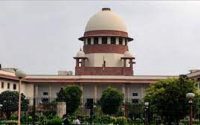$100 Website Offer
Get your personal website + domain for just $100.
Limited Time Offer!
Claim Your Website NowNo proven health, environment impact, government not to ban herbicide Glyphosate
Source: financialexpress.com
The government is unlikely to put a ban on the controversial herbicide Glyphosate as there is no proven record to establish its effects on health or environment, an official source said. The demand to restrict the herbicide, largely used in tea and now HT Bt cotton, has been made by activists alleging it to be a carcinogenic, citing a 2015 study of International Agency for Research on Cancer (IARC).
“Although it will be a political decision whether to ban it or not, the official position is that the herbicide is needed for agriculture and is used in many countries, including the US, China, Brazil and Canada. The harmful effects of Glyphosate on human health is yet to be established as the World Health Organisation has not issued any advisory,” the source said. While the Centre may not ban the herbicide, it is also not going to interfere if any state bans its use within its territory, the source added.
As per the Insecticides Act, 1968, the Centre has the power to ban any agro-chemical permanently after following certain procedure, but states can also put restriction on its sale and use for a maximum period of 90 days.
A ban on sales of Glyphosate is currently in force in Punjab, Telangana and Andhra Pradesh. When Kerala extended a ban in May this year, beyond 90 days prescribed limit, dealers of the agro-chemical approached the state’s high court. The Kerala High Court held the ban beyond 90 days as illegal and asked the state government to request the Centre if it wants a permanent restriction.
In 2015, the IARC (under WHO) had put Glyphosate under category 2A, which means it is “probably carcinogenic in humans” and the categorisation was based on epidemiological and animal studies. Following this, countries like France, Italy and Vietnam have banned the use of Glyphosate.
The demand for its ban started in India after the issue of large scale plating of HT Bt cotton came to light as this GM seed has not been approved by the government. Due to its herbicide tolerant (HT) nature, farmers prefer it to save money on using manual labour for clearing weeds under the cotton crop. When Glyphosate is sprayed, it kills weeds but does not affect the HT Bt cotton.
In kharif 2019, industry sources said that 30-35 lakh packets of the illegal HT Bt cotton seeds (1 packet weighs 450 gm) have been sold, which is enough to cover 9.5 lakh hectare area. According to the agriculture ministry data, sowing area under bt cotton seed was at 111 lakh hectare as on August 9. This means the area under HT Bt seeds will be about 8% of total area under Bt cotton.
The RSS-affiliated Swadeshi Jagran Manch (SJM) last month demanded ban on the use of Glyphosate claiming risk of cancer increases by 41% due to this herbicide. J Subbarao is one of the many disappointed farmers of Vizianagaram in Andhra Pradesh, who was using Glyphosate for last 20 years. “As cost of manual labour is more to clean weed, we are now using paraquat (herbicide) after the ban and it is not even half as effective as Glyphosate,” he said.



